Starting a job search can feel overwhelming, but it doesn’t have to be. The first step is crucial; it sets the tone for everything that follows. Whether you’re diving into the job market for the first time or looking to make a change, knowing where to begin is key to a successful search.
I’ve found that self-assessment is the perfect starting point. Taking the time to evaluate your skills, interests, and career goals helps you narrow down your options and target the right opportunities. This clarity not only boosts your confidence but also enhances your chances of landing a job that’s a great fit for you. Let’s explore how to kick off your job search the right way.
Key Takeaways
- Start with Self-Assessment: Take the time to evaluate your skills, interests, and career goals to narrow down job opportunities and boost confidence.
- Establish Clear Goals: Identify short-term and long-term objectives to guide your job search, ensuring a focused approach toward achieving your career aspirations.
- Research Job Opportunities: Leverage job search platforms and networking to identify roles that align with your skill set and interests for better targeting of applications.
- Tailor Your Resume: Customize your resume for each position by incorporating relevant keywords and experiences to demonstrate your fit for the role.
- Prepare for Interviews: Engage in thorough research and practice common interview questions while understanding the company culture to enhance your interview performance.
- Address Common Challenges: Be aware of potential obstacles in the job search process and develop strategies to overcome issues related to clarity, anxiety, and networking skills.
What is the First Step When Starting the Job Search Process?
Starting the job search process successfully is fundamental for achieving career goals. Grasping the elements involved ensures a strategic approach, enhancing overall effectiveness.
Importance of Starting Right
Starting right impacts the entire job search journey. Establishing clear objectives defines paths toward suitable positions. A thorough self-assessment of skills, interests, and values forms the foundation for successful applications. Tailoring a resume and cover letter reflects this initial evaluation and improves chances of landing interviews. Aligning personal goals with industry demands fosters a confident and focused search.
Common Challenges Faced
Navigating the job search process often comes with several challenges. Anxiety about competition among candidates can hinder progress, creating a sense of overwhelm. Lack of clarity regarding desired job roles might lead to scattering efforts across unsuitable opportunities. Poor networking skills can reduce access to valuable resources and connections, further complicating the search. Developing strategies to address these challenges enhances resilience and focus in pursuing desired positions.
Identifying Your Goals

Establishing clear goals serves as a critical starting point in the job search process. Identifying what I want helps me focus my efforts effectively.
Assessing Your Skills and Interests
Assessing my skills and interests forms the backbone of job search preparation. I list my key skills, such as project management, communication, and problem-solving. I also reflect on my interests, such as specific industries or job functions. For instance, I may enjoy working in technology or healthcare. Identifying strengths and preferences leads to targeted job opportunities that align with my capabilities and aspirations.
Setting Realistic Objectives
Setting realistic objectives ensures I pursue achievable goals during my job search. I define short-term and long-term objectives, such as securing interviews within three months or landing a position within six months. I also consider factors like location, salary expectations, and company culture. Establishing these objectives provides a roadmap for my job search, making it easier to measure progress and adjust strategies as needed.
Researching Job Opportunities

Researching job opportunities forms a vital part of the job search process. This stage involves leveraging various tools and networks to identify roles that align with my skills and interests.
Utilizing Job Search Platforms
Utilizing job search platforms gives access to various job listings that suit diverse fields. Websites like Indeed, LinkedIn, and Glassdoor provide filters for industry, location, and job type to refine searches. I can set up job alerts to receive notifications for specific roles. It’s essential to customize my profile on platforms like LinkedIn to enhance visibility and connect with recruiters. Additionally, reviewing company pages can offer insights into company culture and job expectations.
Networking and Referrals
Networking and referrals significantly increase the chances of finding job opportunities. I can tap into my professional network, including former colleagues, mentors, and industry contacts, to gather information on potential openings. Attending industry-specific events and meetups helps in building new connections. Utilizing social media, particularly LinkedIn, allows me to engage with professionals in my field and request informational interviews. Asking for referrals from contacts can also improve my chances as many roles are filled through recommendations.
Crafting a Strong Resume

A strong resume serves as a critical tool in the job search process. Crafting this document with precision can significantly improve my chances of landing interviews.
Tailoring Your Resume for Each Job
Tailoring my resume for each job application enhances its impact. Analyzing the job description helps identify keywords and skills that align with the position. I incorporate these elements into my resume, ensuring it reflects the specific requirements of each role. Customizing job titles, skill sections, and summaries fosters a stronger connection with potential employers. I aim to present myself as a perfect fit for their needs.
Highlighting Relevant Experience
Highlighting relevant experience is essential in showcasing my suitability for a role. I prioritize listing experiences that align with the job responsibilities outlined in the job description. I include quantifiable achievements, such as “increased sales by 30%,” to demonstrate my contributions effectively. Using bullet points allows for a clean, skimmable presentation of experiences. I ensure that each entry emphasizes skills and accomplishments that relate directly to the job, thereby establishing my value to prospective employers.
Preparing for Interviews
Preparing for interviews involves thorough research and practice, which significantly boosts confidence and enhances performance. Focusing on potential questions and understanding a company’s culture lays the groundwork for delivering strong responses during interviews.
Practicing Common Interview Questions
Practicing common interview questions prepares me for a range of scenarios. Familiar questions like “Tell me about yourself” or “What are your strengths and weaknesses?” are essential to rehearse, ensuring I articulate my experiences effectively. I often use the STAR method (Situation, Task, Action, Result) to structure my answers, which helps to convey my accomplishments clearly. Additionally, I refine my responses through mock interviews with friends or mentors, allowing for constructive feedback and the opportunity to hone my delivery.
Understanding Company Culture
Understanding a company’s culture is vital for tailoring my responses to align with its values. I research the company’s mission, vision, and workplace environment by reviewing their website, social media, and employee reviews on platforms like Glassdoor. This information allows me to incorporate specific examples during the interview that demonstrate cultural fit. I also prepare insightful questions about the company’s culture to ask during the interview, showing my genuine interest and engagement while assessing whether it aligns with my own values and work style.
Starting a job search is more than just sending out resumes. It’s about taking that essential first step of self-assessment. By evaluating my skills and interests I can pinpoint the roles that truly resonate with me. This clarity not only boosts my confidence but also sets a strong foundation for a successful job search.
Establishing clear objectives allows me to navigate the job market more effectively. With a solid understanding of what I want I can tailor my applications and approach networking with purpose. This structured method transforms the job search from a daunting task into a manageable journey toward my career goals.

